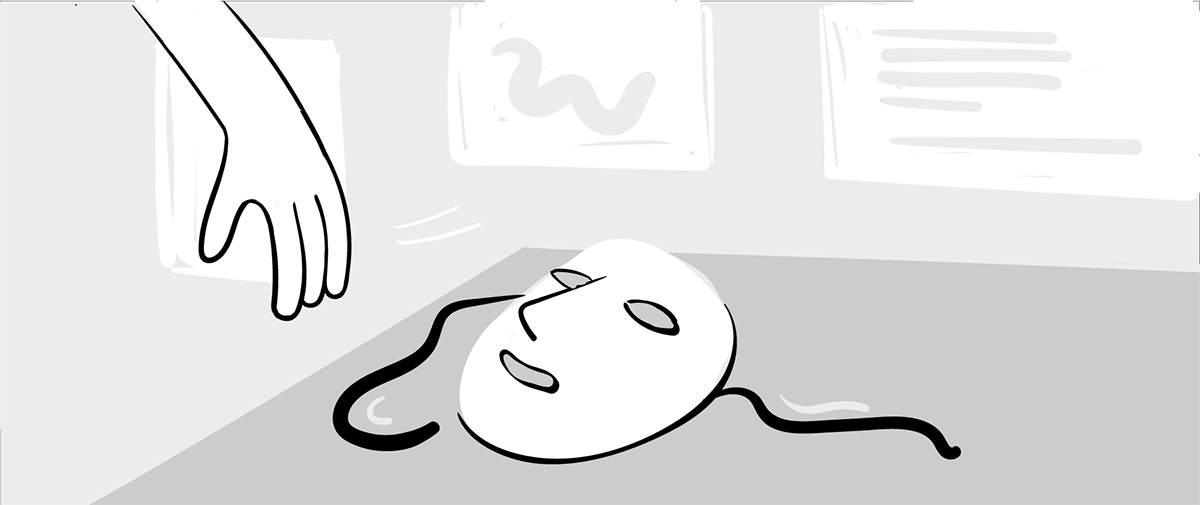Bossing it: Why now's the perfect time for leaders to be more vulnerable


This has been a year that has forced each and every one of us to rethink so much of our lives – including work.
In many cases, old methods simply aren't an option and it's become necessary to find new approaches.
In other areas, it's more a case of 2020 providing an opportunity to pause and reconsider. To think about the path we were on.
One of those areas is leadership and how leaders can (and should) show vulnerability. Because in 2020, I've really seen that when they do, the whole team benefits.
The year of the underdog
The last few months have presented the perfect opportunity for ideas that once seemed like underdog approaches to seize the moment.
With everything shifting so fast, ideas had a new chance to flourish and spread.
As a manager, I’m glad to see one of my favourite topics (up to now an underdog in business debates) is increasingly on the agenda: Vulnerability in business leaders.
Dan Rose, who's worked at Facebook and Amazon, went viral with his very open discussion about his own shortcomings.
Meanwhile, Lea Sophie Cramer, German founder and member of the advisory board at Amorelie, recently published a highly-acclaimed article on vulnerability as a factor in entrepreneurial success .
"Especially in times of crisis we realise: vulnerability is a leadership superpower. We should embrace it more often,” she wrote.
That piece really resonated with people – including me. Because frankly, I can’t remember a better time to talk about openness at work – and the benefits it offers.
Vulnerability – the ace up your sleeve
So, how can vulnerability become a manager's trump card on the way to greater productivity ? How does vulnerability help create high-performance teams, where each individual delivers their best, every single day?

The short answer is that it promotes trust .
Trust in a team leads to increased emotional commitment at work, which in turn motivates better performance.
The Harvard Business Review reports that people at high-trust companies experience 74% less stress, 106% more energy at work and 50% higher productivity compared with people at low-trust companies.
The long answer to the vulnerability question is really interesting too.
Manage those emotions
Just 8% of employees felt an emotional bond with their employer, according to 2016 research by Gallup .
The loss of productivity caused by this lack of connection is immense for companies throughout the UK. To be more specific: Gallup estimates that disengaged employees cost the UK economy £52 - £72 billion per year , through lost productivity and errors.
Google analysed its high-performance teams in 2015, with the aim of identifying their essence and applying it to other departments. They discovered that groups that perform at their best stand apart in one major respect – they enjoy a more open work environment.
Team members do not hesitate to ask each other for help and advice. They make each other aware of company developments and push each other towards setting the right priorities. If everyone feels comfortable and valued, a much more honest and direct form of communication is enabled, which in return encourages agile and rapid action within the company.

Teams like this embrace the concept of psychological safety . Trust between members is so strong that everyone can develop freely, reach their full potential and make bolder decisions with the support of their colleagues.
The cost of losing trust
I speak from personal experience when I say that even tiny amounts of friction over a long period of time can have large repercussions.
Imagine that we all carry around a rucksack with our work frustrations in it. Friction means that rucksack gets a little heavier every day – until you eventually collapse under its weight... Or simply throw it away (to start loading up a new rucksack at a different job).
Companies don't gain anything from baggage that leads to burnout or sudden layoffs of long-time employees.
So don’t hide behind a mask, just for the sake of “professionalism”.
Be vulnerable. Take the “boss” mask off, be yourself and work hard to build trust with your colleagues.
It’s not easy, sure. But it is easier than you think .
How to use vulnerability as a superpower
1. Make it a habit to share about yourself
What goes around comes around. So as a manager (or simply as a person who wants to engage), become a role model.
Set yourself a daily goal of sharing a little personal story with your team. Tell colleagues what moves you, what mood you are in, where you have made mistakes or where you have done something particularly well.
Take the opportunity to reflect, practice your awareness and train those sharing muscles.
2. Ask the right questions
US psychologist Arthur Arons developed 36 questions that served as a basis for people to build a deep and lasting bond. The experiment is also known as " 36 questions that can make you fall in love ".
Aron’s thesis (backed up by similar research) is that intimate bonds are created through intensive and regular communication – but especially through finding common ground.
So why not give it a try and use this knowledge to create a more personal bond with your team? It's not about finding friends or partners for life. It is about getting to know and understand your colleagues and their needs.
Let your people talk about their biggest losses in the last year (And hey, don't exclude yourself. Maybe even start the conversation by talking about your own losses). In doing so, you not only create a safe space to show vulnerability, but you will most likely encounter a lot of mutual compassion, and possibly even common ground.
Let's start to define your team through similarities rather than differences.
3. Become transparent in your actions when delegating
Practice sharing responsibility, information, knowledge and skills.

For all newbies to this practice, I recommend taking a small step every day. Start by thinking about what information it is that you could share with your team to give them an advantage.
Is there a chance to delegate certain responsibilities or even spread them across the team? Your actions will prove that you truly trust your employees – and in return they will start to truly trust in you.
This is how you strengthen team spirit, promote innovation and support the finding of creative solutions.
The time has come to embrace vulnerability
At Pleo, we attach great importance to the philosophy that showing vulnerability isn’t just a personal characteristic, but can become part of a company’s identity.
What I like to call “daring leadership” can really work.
By a daring leader, I mean someone who dares to be vulnerable. Who develops a deeper understanding of what's beneath the surface and works to connect with her employees. A daring leader understands that communication on a personal level ultimately improves the team's cooperation and performance.
Working together feels easy because we really know each other. Think of team sports, such as football: The best results are achieved when team spirit is high and everyone relies on each other.
And by the way: Not all players have to be best friends for this to work!
2020 is without doubt a year of upheaval. The time has come to leave our comfort zones and come to work as the people we truly are. Ditch the armour and we’ll be doing ourselves, our teams and our companies a real favour.
Keep your business one (big) step ahead
Give your team the tools they need to work and spend smarter – in a way that boosts your bottom line.
Powered in the UK by B4B partnership